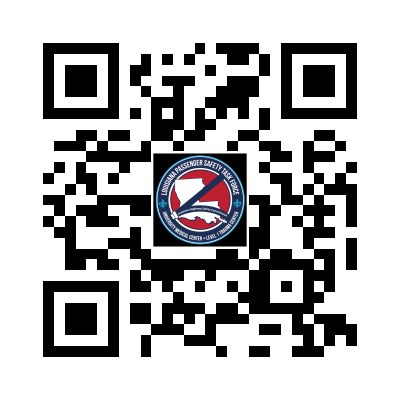Child Passenger Safety
Child Passenger Safety Week
September 21-27, 2025
National Seat Check Saturday
September 27, 2025
The first car seats were invented in 1921, following the introduction of Ford's Model T. The earliest versions were essentially sacks with a drawstring attached to the back seat. In 1971, the federal government established minimum standards for child safety seats and restraint systems to reduce the number of children killed or injured in motor vehicle crashes. Today, all states and territories have child passenger safety laws that require child safety seats for infants and children fitting specific criteria, but requirements vary based on age, weight, and height. Louisiana law states that all drivers and passengers, regardless of which seat they occupy in a vehicle, must wear a seat belt or be properly restrained in a child safety seat that is properly installed. The fine for not being properly restrained is $50.
In Louisiana, Child Passenger Safety Fitting Stations may be found statewide with over 600 nationally certified Child Passenger Safety Technicians available to make sure your child's safety seats are installed properly. Proper use and proper installation of child safety seats could be the difference between life and death in the event of a crash.
It's estimated that 96% of all child restraints are installed incorrectly. Our team can teach you how to select the proper child restraint, ensure that your child is placed into the restraint properly and that the restraint is correctly installed in your vehicle. Everyone who participates in a Child Safety Seat Installation Program will receive one-on-one instruction from a nationally certified Child Passenger Safety Technician (CPST) or instructor.
Louisiana Passenger Safety Task Force
The Louisiana Passenger Safety Task Force is focused on raising awareness about occupant protection and provides widespread community education and coordinated child safety seat checks throughout Louisiana. To reach the objectives, LPSTF sought to reduce motor vehicle-related fatal and injury crashes to children through the following activities:
- Coordinate and support educational efforts by Child Passenger Safety (CPS) advisory group members during National Highway Traffic Safety Administration (NHTSA) campaigns, such as Buckle Up America or National CPS Week.
- Provide five-day standardized CPS instructor / technician classes in geographically appropriate areas for statewide impact. Areas will be selected based on lack of trained individuals in a particular area and accessibility for training facilities.
- Maintain a CPS advisory group to help provide a statewide comprehensive network of certified CPS technicians and instructors. The group would meet quarterly and be responsible for gathering and maintaining a database of all Louisiana CPS technicians.
- Create and maintain standardized, minimum requirements for CPS instruction provided during state-generated CPS courses and the four-day NHTSA courses.
- Conduct checkup events throughout the state.
- Provide one-day instructional courses to recruit technicians, educate community groups, and promote occupant protection.

New Child Seat Law (2019)
Child Seat Law — English and Spanish
Transporting Children with Special Needs
Publications
Child Safety Seat Recommendations
Child Safety Seat Recommendations in Spanish
A Parent's Guide to Playing it Safe with Kids and Cars
Resources for Parents
Resources for Technicians
National Child Passenger Safety Certification
National Child Passenger Safety Board
Survey Reports
2019 Louisiana Child Restraint Observation Survey Results
2018 Louisiana Child Restraint Observation Survey Results
2017 Louisiana Child Restraint Observation Survey Results
2015 Louisiana Child Restraint Observation Survey Results
2014 Louisiana Child Restraint Observation Survey Results
2013 Louisiana Child Restraint Observation Survey Results
